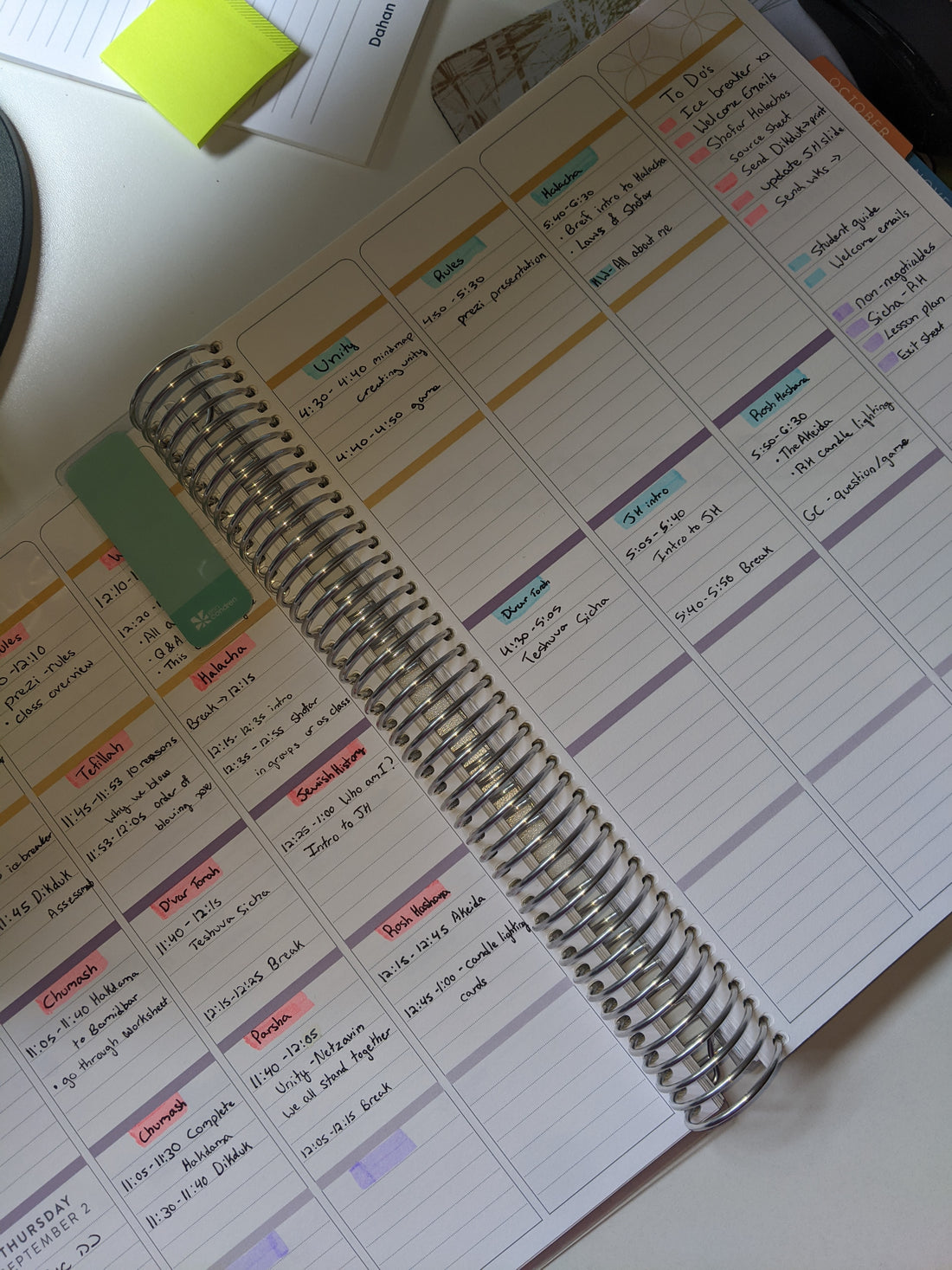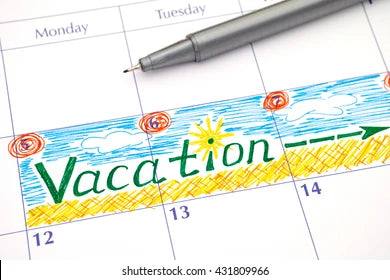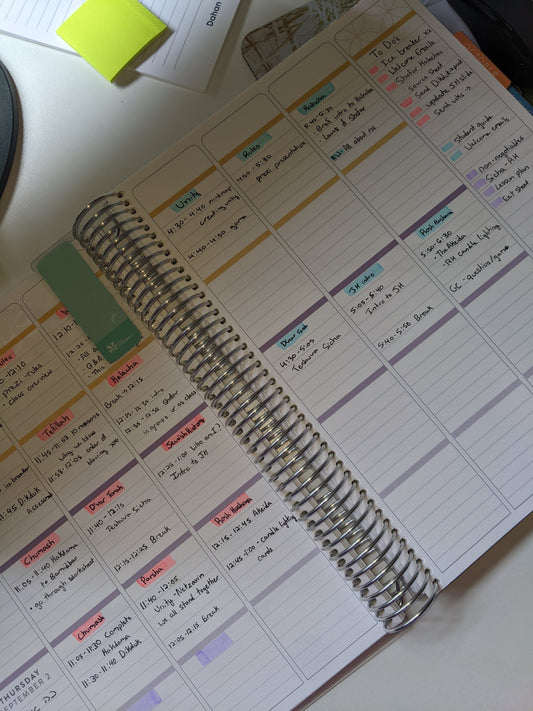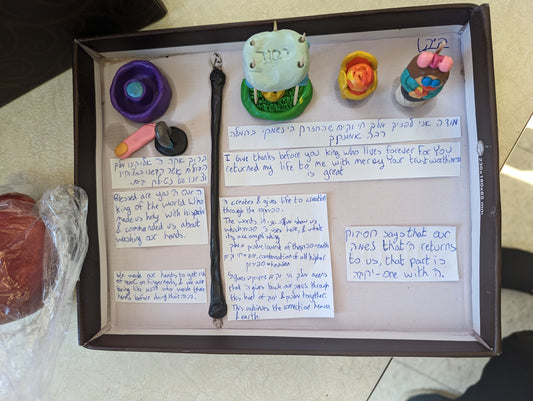Kids love summer, but when I was a kid I couldn't wait for the back-to-school season to begin. (Teachers, sound familiar?) I couldn't wait to get my class supply list and drag my mom to Staples just to convince her I NEEDED an expensive planner.
Now as a teacher, I still love back to school, excited to great my new students, but most of all, I love getting MY NEW PLANNER.
Teachers' lives are super busy and can easily get overwhelming. Many teachers teach multiple subjects and classes and keeping track of it all isn't easy, from lesson planning to preparing activities, slideshows, worksheets, grading assignments, and of course, emails.
So how do we do it all? COFFEE! Just kidding we don't.
But it helps to plan.
But how? Where do I start?
Welcome to Planning 101
The secret to planning is trial and error. There are so many styles of planners, geared toward lesson planning, personal, scheduling, and to-do lists.
Planning Basics:
What do I need to plan? You need a piece of paper, (or any other writable surface) and a writing utensil, or a place to take notes on your phone. You do not NEED any fancy planner.
However, I love my fancy PAPER planners. Here are my top few planners
-
Erin Condren (All the planners, all the stationary.) My Fancy Planner!
My personal favorite is their hourly weekly planner and I am currently also using the compact vertical layout for keeping track of my work tasks. They also have homeschool planners and teacher planners. They have a layout for everyone! Can you tell I love my planner?
- At a Glance Planner I used this one many years ago
- Weekly Planning Pad - To keep things super simple
- Teacher Lesson Planner (Colorful)
- Teacher Lesson Planner (Simple)
- A whiteboard
- Any To-Do list pad
You can and SHOULD choose a planner that will work best for you.
Now that we covered the basics (which I already over-complicated) Let's start with
Lesson Planning & the Long Haul.
It makes a huge difference when you come to class prepared. A teacher who knows what she is covering is more interesting to listen to than a teacher who is winging it. There are many ways to lesson plan. You can use a teacher lesson planner, notebook, google Docs/google sheets, a slideshow, or a DIGITAL PLANNER. Personally, I don't like to plan digitally but if you do, I highly recommend this teacher planner.
So now that you decided what method of planning you will use, we can talk about how to plan.
The secret to lesson planning is to set goals, for each curriculum, unit, lesson, and class. I know it seems like a lot, but by doing this you will help YOU and YOUR STUDENTS.
Let's take Navi Shoftim for an example. Great, we have our curriculum, if your student have a workbook that will be helpful for your planning too. In my case, my students didn't so it was just the Navi and a few helpful books I had on hand.
- Count the number of classes you will have (approx) and find the middle mark of the year. Depending on the Chagim and your school's vacations it will be somewhere around January. At this point, you want to be roughly halfway through the curriculum.
But what is half way? - Divide up the units and if you know of the subject guesstimate which ones will take you longer or shorter. Is there a topic that will take longer or one that you're doing more orally and quickly? Keep these in mind when finding your "halfway" mark.
- Now I make a "tentative plan" for how long and when I expect to get through each unit. By November I expect to be teaching "Ehud". Keep in mind your school's terms, this will help you make sure you give an assessment before PTA or to have enough material to mark for report cards.
Now we can move into an individual unit.
- Set lesson objectives and goals. What do I want my students to specifically walk away with in this unit? What lessons can I bring out? How would I Iike them to be assessed?
- Set a time frame, how many classes will you need to cover the unit? What do I expect to cover in each class? Will I leave a class for review or need in-class time for the assessment?
For the lesson
- Objective - what will I be covering
- Divide my time to cover each aspect of the lesson
- Prepare - learn the material, write notes if needed, visuals or handouts for the class.
- Will there be an assignment for the lesson to measure the objectives if so plan that as well.
You can definitely simplify these steps but it's important to set goals and objectives for your curriculums. This helps students follow along, you cover your content, and ensure you teach the important lessons and your students understood the objectives.
Using a lesson planner is simple. The days are along the side or across the top and you fill in a box per subject you are teaching each day with your lesson plan. I recommend keeping your lesson planners to refer back to in future years.
Personally, I decided not to use a lesson planner for this year based on the number of different classes and the different schedules for the days I work. As I said above I am using a "compact vertical" ring-agenda layout which gives me a section for each day for managing all my little to-do's and because its a ring-agenda I have note pages that I plan to lesson plan on based on my preferred style of lesson planning by subject. In previous years I found it very helpful and loved using my lesson planner. We'll see how my notes style goes.
If you would like guidance with your curriculum mapping and lesson planning contact Judaic Resources.
Personal Planning
Personal planning is not limited to "Personal life" but rather to managing all your tasks. People have different styles of personal planning. There's the yearly/monthly layout, the weekly, and for some also a daily plan.
For the beginner, I recommend using a monthly planner - or a calendar where you can put in your work schedule, appointments, events, bills, deadlines etc.
For someone who is interested in planning - a weekly planner. There are a few different styles of weekly planners, there's a schedule style which is good for managing many different activities, meetings or classes, appointments, pick up drop off, supper time, etc but this schedule doesn't leave a lot of space for all the little daily tasks and all the emails you need to write.
There is also a "horizontal" or a block section per day - this doesn't make managing a schedule easy, but it's great for all the little tasks.
Then there's a daily planner. This is great for busy people with many to-dos who needed to see just a day at a time. There are many great notepads for this as well.
Another great option is using Google keep or tasks to run through your to-do lists.
In short, there's a planner for everyone, and keeping your organize chaos in one place (or two) to stay more focused and more productive. In your life, lessons, and for the long haul.
If you want a guide to planning contact Judaic Resources to get started.





